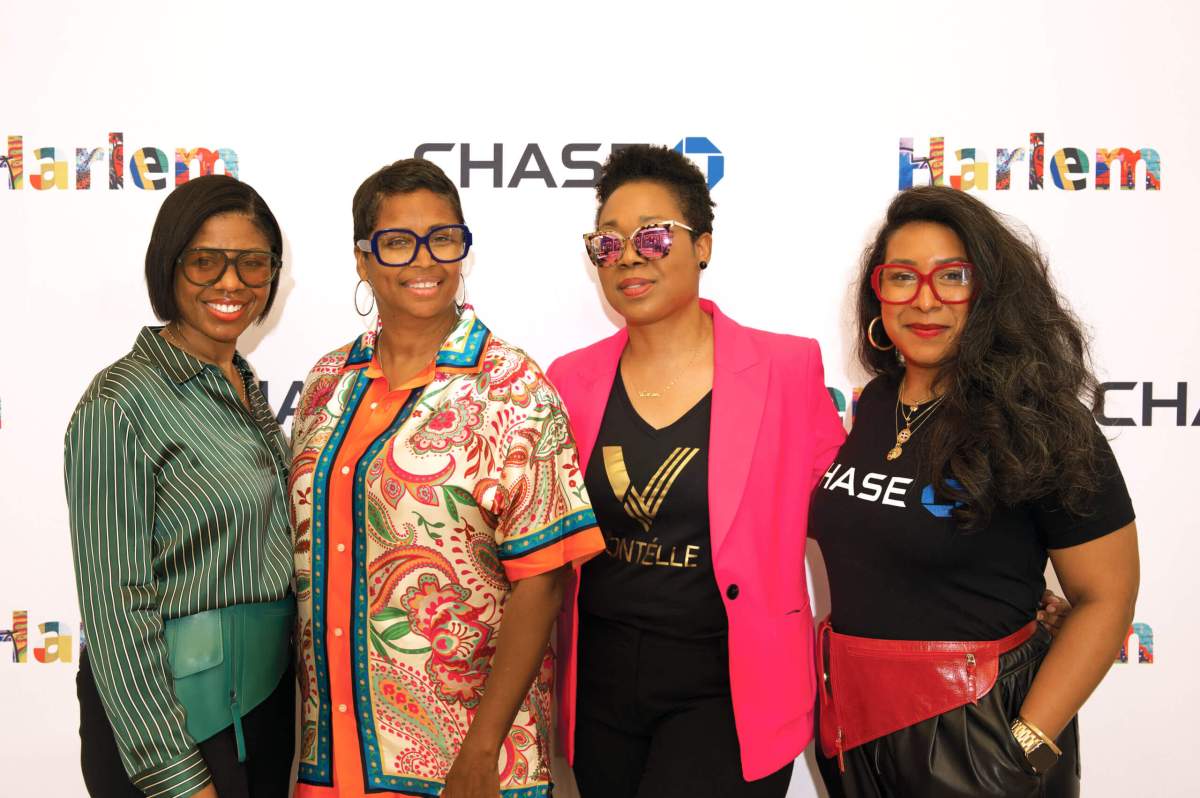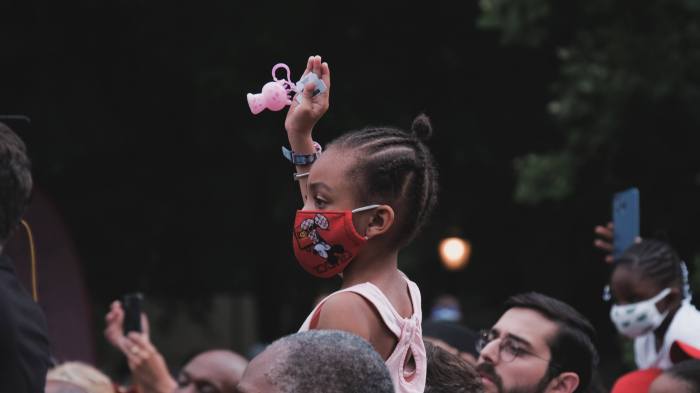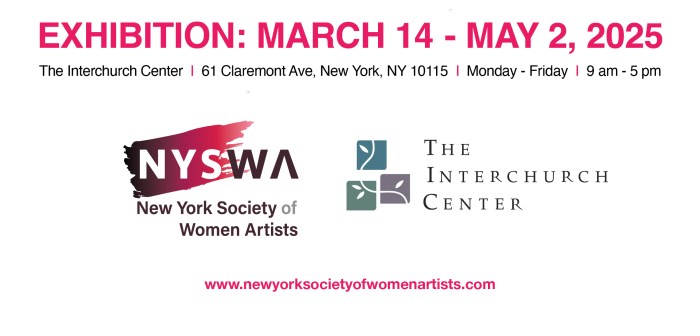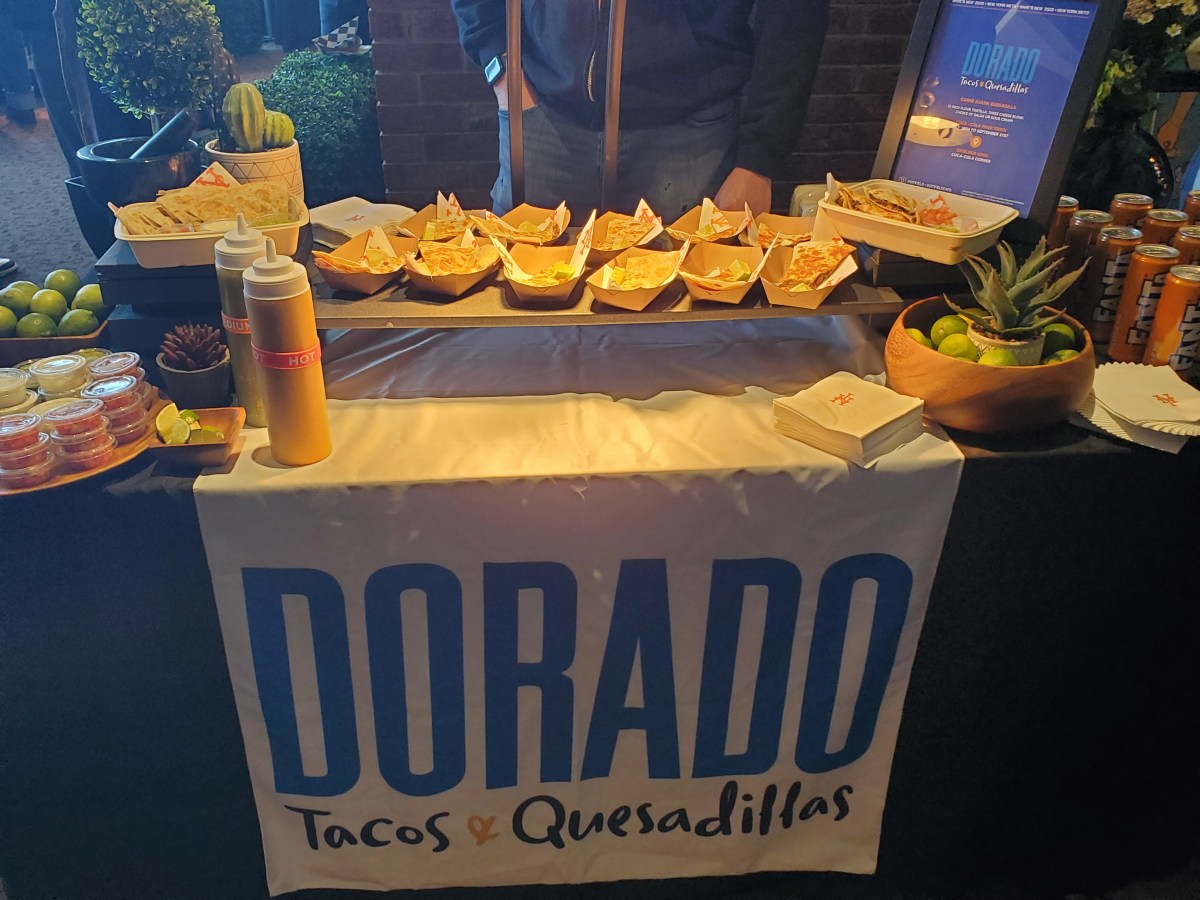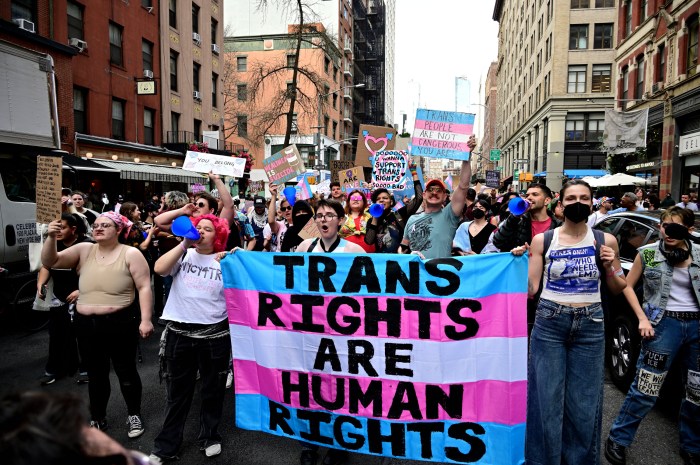The founders of Harlem Haberdashery and Vontélle Eyewear, two New York City-born-and-bred businesses that were nurtured via JPMorgan Chase’s minority entrepreneurship program, announced the launch of their new collaboration at a Juneteenth pop-up event in Harlem on Saturday, June 17.
The two business have come together and have released a limited eyewear line with bold designs and names featuring historic Harlem landmarks: Lenox Avenue, Sugar Hill, and the Harlem Renaissance.
The founders, Sharene Wood of Harlem Haberdashery and Tracy Green of Vontélle, as well as Joy Butts, a vice president and senior business consultant for JPMorgan Chase, talked at the pop-up about the intricacies of making business boom in a vastly-changing and dynamic landscape.
In 2020, JPMorgan Chase announced a $30 billion commitment towards promoting racial equity and bridging the racial wealth gap between white-owned businesses and businesses owned by people of color. This includes $15,000 loans and mentorship programs for businesses based in predominantly Black, Hispanic and Latino/a areas. The program is free and open to the public.
The business pop-up was only the second of its kind and came on the heels of another pop-up during Small Business Week in early May.
Butts, who is one of 50 senior business consultants working one-on-one with businesses across the nation, told amNewYork Metro that the goal of the program is to not only elevate and uplift minority entrepreneurs, but to also pour resources and know-how into their communities.
“One of the key pillars of what it is that we do is to connect businesses together,” Butts said. “We realized that there’s a lot of business owners that sort of feel lonely. They’re in it all by themselves.”
While the program is meant to be accessible to all businesses — “whether you’re just starting your business, or you’re a $30 million company,” Butts said — Harlem Haberdashery and Vontélle demonstrated their success even before venturing into entrepreneurship.
“They’re extremely successful in what they’re doing,” Butts said. “They will be an example to others that look just like them.”
Grit and perseverance are two traits Butts has seen time and time again in the Harlem business community, she said. This means being able to pivot regardless of the climate and pooling resources with other like-minded businesses.
“When you pool, not only your knowledge or expertise, but your resources, social capital, and financial capital, then you actually can contend in a changing marketplace,” Butts said. “Those are some of the things that that we’re seeing locally within the Harlem community.”
JPMorgan Chase has worked with roughly 80 businesses in Harlem and opened a community center in Central Harlem in June 2019. The financial services giant also plans to open more community banking centers in Brooklyn and The Bronx.
“It’s really based on the same model that’s been successful,” Butts said. “We just continue to get better and better at what we do in servicing the community.”
The minority entrepreneurship program offers its cohort members a coaching process that identifies strengths, weaknesses, opportunities, and threats (commonly known as a SWOT analysis), focus areas, a special purpose credit program, education about loans and lending, business certification, and business development.
Butts described the program as an educational process to identify what might be best for businesses, and help them to understand the different lending vehicles that are out there, while also ensuring the businesses can stay protected from those that might be predatory.
“It’s one thing to get the education, but then you need to continue to move the needle to actually get the access to capital,” Butts said. “So, they’re not entering into a situation with their eyes closed, and might be paying exorbitant amounts of interest where they don’t necessarily have to.”
When Vontélle Eyewear cofounders Tracy Green and Nancey Harris entered the business landscape, they each contributed $50,000 to get their business off the ground. They used this to create the Vontélle website, logo design and trademarking, and legal fees for attorneys. The minority entrepreneurship program then provided them with roughly a $70,000 line of credit.
While the program was helpful, Green told amNewYork Metro that the challenge was filling out all the applications which felt like “answering a RFP.” A Request for Proposal is a business document commonly used by government agencies or organizations that outlines a proposed project and announces a bidding process for contractors.
“It’s that labor intensive; it’s tough. It’s not easy,” Green said. “I think a lot of businesses might just give up because it’s a lot of work.”
Vontélle Eyewear started after Green complained to Harris — who she met in college at Morgan State University — about her seemingly endless search to replace a pair of beloved eyeglasses. Harris told Green she had lost a pair of glasses as well and the idea to create an eyewear brand was borne on the spot. The two women flew to Paris for a “fashion week just for glasses” and found even more motivation.
“We walked around and there’s no people that look like us,” Green said. “That was our ‘Aha.’ Glasses don’t fit our faces because there’s nobody making glasses who’s Black or of color.”
Becoming a formally certified minority/woman-owned business made a huge difference because the certificate can open doors to new business opportunities that others might not have access to. JPMorgan Chase played a vital role in making that happen, Green said.
“Opportunity, funding, and support,” Green said. “That’s all small businesses need.”
Four years after launching during the COVID-19 pandemic, Vontélle Eyewear is licensed with Nickelodeon, selling on Amazon, and in Saks Fifth Avenue. The brand is in 70 stores in the states and a few stories in the Caribbean.
“We want to be global,” Green said. “We want to be able to go to India, Africa. Our goal is to expand and do more lines.”
For Green, a part of this year’s Juneteenth was being able to announce the partnership with Harlem Haberdashery and founder Sharene Wood to show that two minority-owned businesses can work together and produce something beautiful. The brands started working together in 2022.
“It was really important for us to align with small businesses that were very similar to ours,” Wood said. “Juneteenth is the perfect opportunity to reveal the glasses because we’re talking about economic freedom, as we started to build that new Black Wall Street.”
Wood, who has been an entrepreneur since 1992, described the need for multiple revenues and the conscious push to create your own economies in order to thrive as a lifestyle brand. Harlem Haberdashery has been a long-standing fixture in the Harlem community after opening 12 years ago. Wood said Chase’s program helped scale an already-successful business and provide access to even more capital and resources.
“A lot of times as an entrepreneur, you’re kind of in a silo and you have this very tunneled vision,” Wood said. “You have a lot of bad habits — administrative, organizational and financial.”
Wood told amNewYork Metro that she learned how to strategize with a wider vision and expand her business plan. While Wood invested $200,000 towards starting Harlem Haberdashery, she said there are limitations to only relying on her own finances.
“I’ve been self-funded since the beginning, which is not a good way to scale your business,” Wood said. “You cannot scale your business without access to a lot of resources and capital.”
Now, Harlem Haberdashery is setting its sights on realizing its potential as a “really strong lifestyle brand,” Wood said. This involves identifying with a licensed partner to help the brand expand into more categories in addition to its retail products and premium spirits.
“I think it’s really important to align yourself with someone who has the financial capabilities and the sales and distribution capabilities to push our products across different categories,” Wood said. “Continued collaboration with Chase will absolutely occur as long as they continue to be an ally to my business.”



